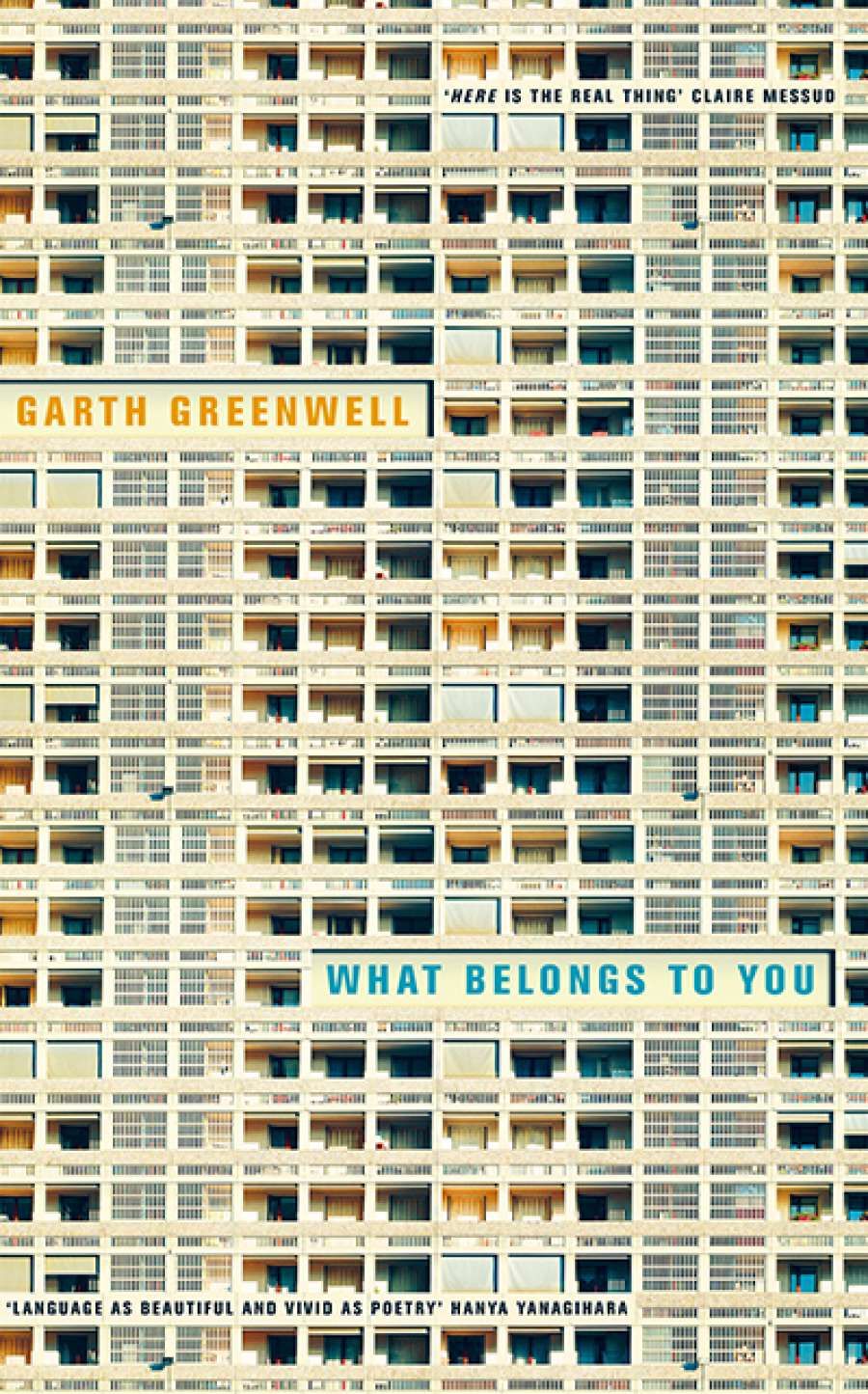
- Free Article: No
- Contents Category: Fiction
- Custom Article Title: Dion Kagan reviews 'What Belongs To You' by Garth Greenwell
- Custom Highlight Text:
In the Bulgarian capital, Sofia, an expat American teacher goes down into the subterranean bathroom beneath the National Palace of Culture, a known beat. There he encounters ...
- Book 1 Title: What Belongs To You
- Book 1 Biblio: Picador $24.99 pb, 194 pp, 9781509836611
The teacher takes a missionary's pleasure in his generosity to the hustler, but is compelled in their interactions to swallow humiliation and his own 'false motives'. From their first encounter, Mitko offers a manner of withholding gratification that only spurs the teacher's longing. Remorsefully – and in remorselessly dense psychological detail – the narrator recalls their cyclical meetings, the physical and behavioural clues to Mitko's furtive unravelling, Mitko's pressing demands, and the violence he portends. This relationship cannot go well.
Greenwell's excursion into the heart of desire's darkness is less revelation than advanced excavation. This teacher has explored the covert terrain of his own desire before; he knows, for example, that he has frequently wavered 'between eagerness and distance, an ambivalence that ... was especially acute with Mitko', but characterises all his relationships, 'casual and profound'. Class and language distances create convenient conditions for this strange intimacy, the vagaries of Mitko's take on their agreement underline its aloofness, and when 'the contract' is more tangibly breached, the fraught power dynamic takes a more hazardous turn.
In 'Grave', the second, more difficult part of Greenwell's novel, we begin to understand that Mitko's tantalising unavailability is a function of the narrator's desire, a wound from his proto-queer childhood in conservative America. An email summons the narrator home to visit his dying father. This sparks a long series of recollections testifying to the role of shame and abandonment in the creation of the gay self, and, potentially, the creation of certain gay desires. Long ago, a boyish display of arousal by the narrator-as-child turned his once affectionate father away from him. After the incident, the father covers himself and leaves, saying nothing beyond a 'look [that] entered me and settled there and has never left, it rooted itself beneath memory and became my understanding of myself, my understanding and expectation'. Later, his father discarded him entirely: 'faggot ... how could you be my son?'
 Garth Greenwell (photograph by Max Freeman)These primal scenes of paternal abandonment are echoed in the dissolution of a buoyant friendship with 'K', a bookish soulmate who may have been the narrator's first love but who, under the father's watchful scrutiny, became a 'part of my shame'. K invites the narrator to watch his girlfriend fellate him, a 'parting gift' that cuts him off spectacularly. Understanding that their friendship had run its course, the narrator is shown 'how different from me [K] was, how free of the foulness my father had shown him'. The agonising erotics of this moment become a metonymy of desire's future: 'almost without thinking I let my hand drop between my legs and gripped myself hard. I've sought it ever since, I think, the combination of exclusion and desire I felt in his room, beneath the pain of exclusion the satisfaction of desire.'
Garth Greenwell (photograph by Max Freeman)These primal scenes of paternal abandonment are echoed in the dissolution of a buoyant friendship with 'K', a bookish soulmate who may have been the narrator's first love but who, under the father's watchful scrutiny, became a 'part of my shame'. K invites the narrator to watch his girlfriend fellate him, a 'parting gift' that cuts him off spectacularly. Understanding that their friendship had run its course, the narrator is shown 'how different from me [K] was, how free of the foulness my father had shown him'. The agonising erotics of this moment become a metonymy of desire's future: 'almost without thinking I let my hand drop between my legs and gripped myself hard. I've sought it ever since, I think, the combination of exclusion and desire I felt in his room, beneath the pain of exclusion the satisfaction of desire.'
What Belongs to You becomes a melancholy but unwavering account of desire and its aetiologies. If the memory section feels airless and tough reading, it is because it barely pauses to start a new paragraph and never diverts from the narrator's consciousness. Although the email promises to take us away from the streets of post-Soviet Bulgaria, out of the teacher's head and back to America, Greenwell refuses to budge. The narrator scrunches up the printed email and throws it into a stream: 'I wouldn't answer, I wouldn't see my father again, I wouldn't mourn him or pour earth on him.'
Desire's history unearthed, what remains? The book's enduring mystery is the enigmatic Mitko. With his unself-conscious masculine charm and the shocking loss he must surely face, Mitko is one of the most unforgettable characters in contemporary gay literature. We know he will return, and the narrator will be helpless to relinquish him. 'I was used to feeling regret in such moments, of course, sometimes I thought it was part of my pleasure, like a bitter taste making a flavor more rich.' As Mitko's fortunes worsen, the teacher is given more opportunities to play 'American saviour', again ruefully and remorsefully.
The narrator's mother appears briefly – not to unravel further Freudian mysteries, but to witness a prefiguring of profound loss, and to remind the narrator that the 'false comfort' of running away is never possible. Running away is a flight from a 'real remedy'. Besides, he says, 'I didn't truly believe there was a remedy.' What Belongs to You may be claustrophobic and restless from the first cramped scene in a men's public bathroom to its sad dénouement in a stiflingly hot, archaic train carriage crossing Bulgaria, but Greenwell's rare invocation of desire's inexorable spell propels you right to the end.


Comments powered by CComment